A new study has shed light on low levels of trust between fishers and governance post-Brexit in the UK. Can both sides build bridges and improve fisheries management?
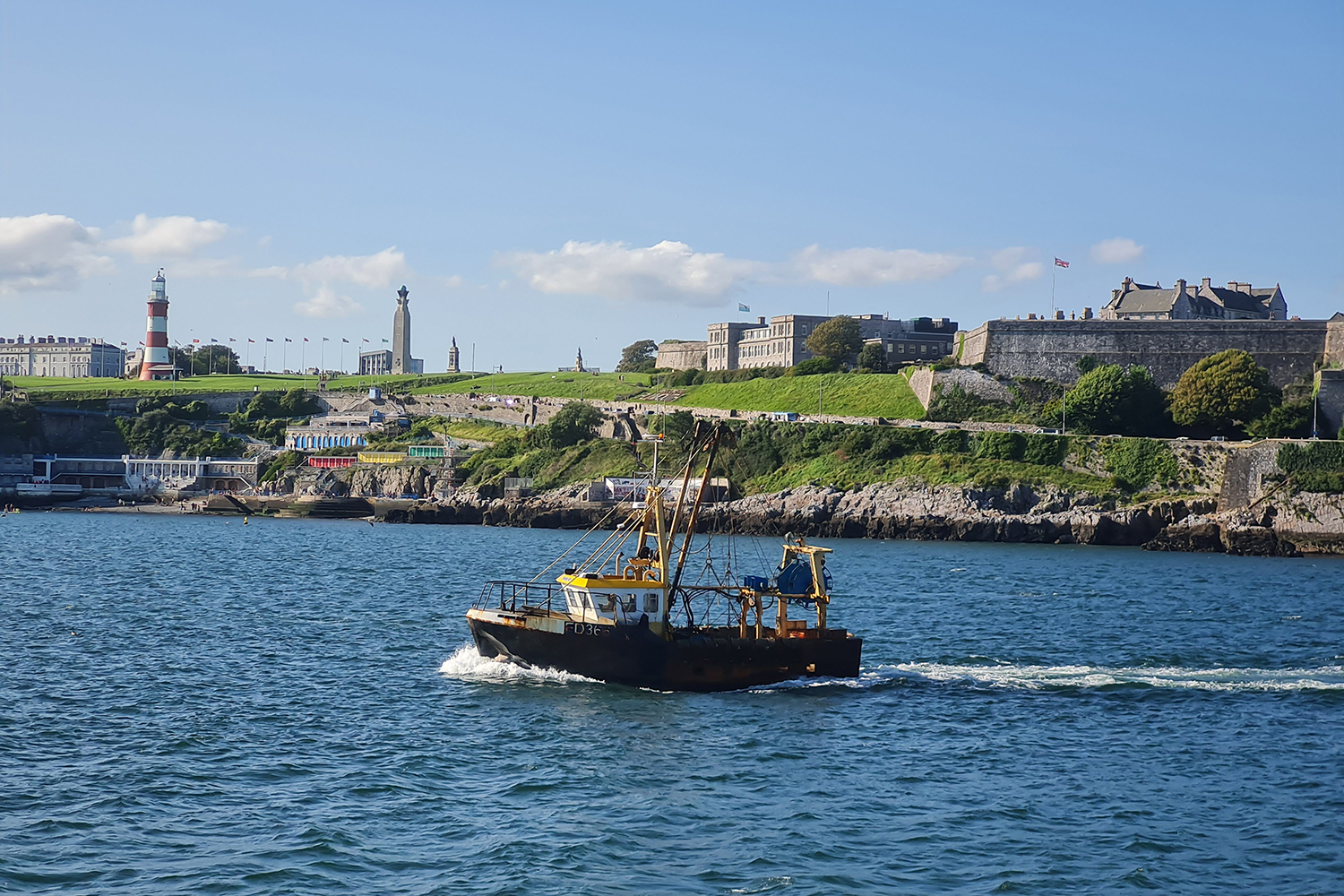
As the United Kingdom debated leaving the European Union, fishing drove a significant part of the public discourse and was held up as an example of what the UK stood to gain outside of the bloc and the limitations it faced within it. In one poll, more than nine in 10 fishermen intended to vote “leave” in June 2016, believing that they were on the verge of regaining control of UK waters.
Brexit has provided an opportunity to improve the management of marine protected areas (MPAs) in the UK offshore zone (12 to nautical 200 miles from the coast). It has also resulted in a new Fisheries Act, which presents the potential for the UK to tailor its fisheries management policies to better to suit its needs.
However, not all changes have been positive. With new checks, paperwork and higher costs, UK seafood exports to the EU – Britain’s biggest trading market – became more cumbersome, expensive and time-consuming. Meanwhile, the vast majority of fishermen did not gain extra quotas or fishing opportunities, and the promise of an exclusive zone inside 12 nautical miles for UK vessels hasn’t been met.
With disappointment and frustration running high, a recent study that is part of the UKRI-funded Pyramids of Life project by the University of East Anglia in March 2024 has highlighted worryingly low levels of trust between fishers and governance since the UK left the EU. To create a stronger, sustainable fishing industry post-Brexit, rebuilding this trust will be vital, according to the study’s authors.
“The average fisherman would say that Brexit was not a good thing,” Dr. Bryce Stewart of the Marine Biological Association and the University of Plymouth told the Advocate. “The immediate response from the fishing industry was one of anger and disappointment. But managing fisheries well relies very heavily on trust and reciprocity. Stakeholders will need to work more collaboratively to support the implementation of new, post-Brexit fisheries policies and management.”
The study, published in the journal Marine Policy, involved a survey that was conducted between July and August 2022 to assess the different elements that influence trust. It found that perceived incompetence, indifference to fishers’ livelihoods and inadequate consultations were major drivers of distrust towards fisheries governance. The study also focused on the mass mortality of crustaceans that occurred on the northeast coast of England in early October 2021, heavily impacting crab and lobster fisheries. The cause of this event has been controversial, with two prevailing theories being considered most closely: a novel disease and toxicity from pyridine released by local dredging activity.
The secret to growing the seaweed farming industry? SAMS study says public trust
“We were already seeing some conflict arise from this event, so it seemed like a good case study to investigate the reasons for that friction and how low the trust was between fishers and regulators,” said lead author Maximilian Dixon of the Centre for Social and Economic Research on the Global Environment (CSERGE) at the University of East Anglia. “The cause of the event is still not clear. Fishermen were presented with a government report that found an algal bloom to be the cause but were unconvinced. They pointed to recent dredging of the local river Tees, known for its involvement in industrial production. This setting was a good opportunity for us to analyze how this dispute was impacting trust and apply a novel approach to quantifying and understanding trust, lack of trust and distrust.”
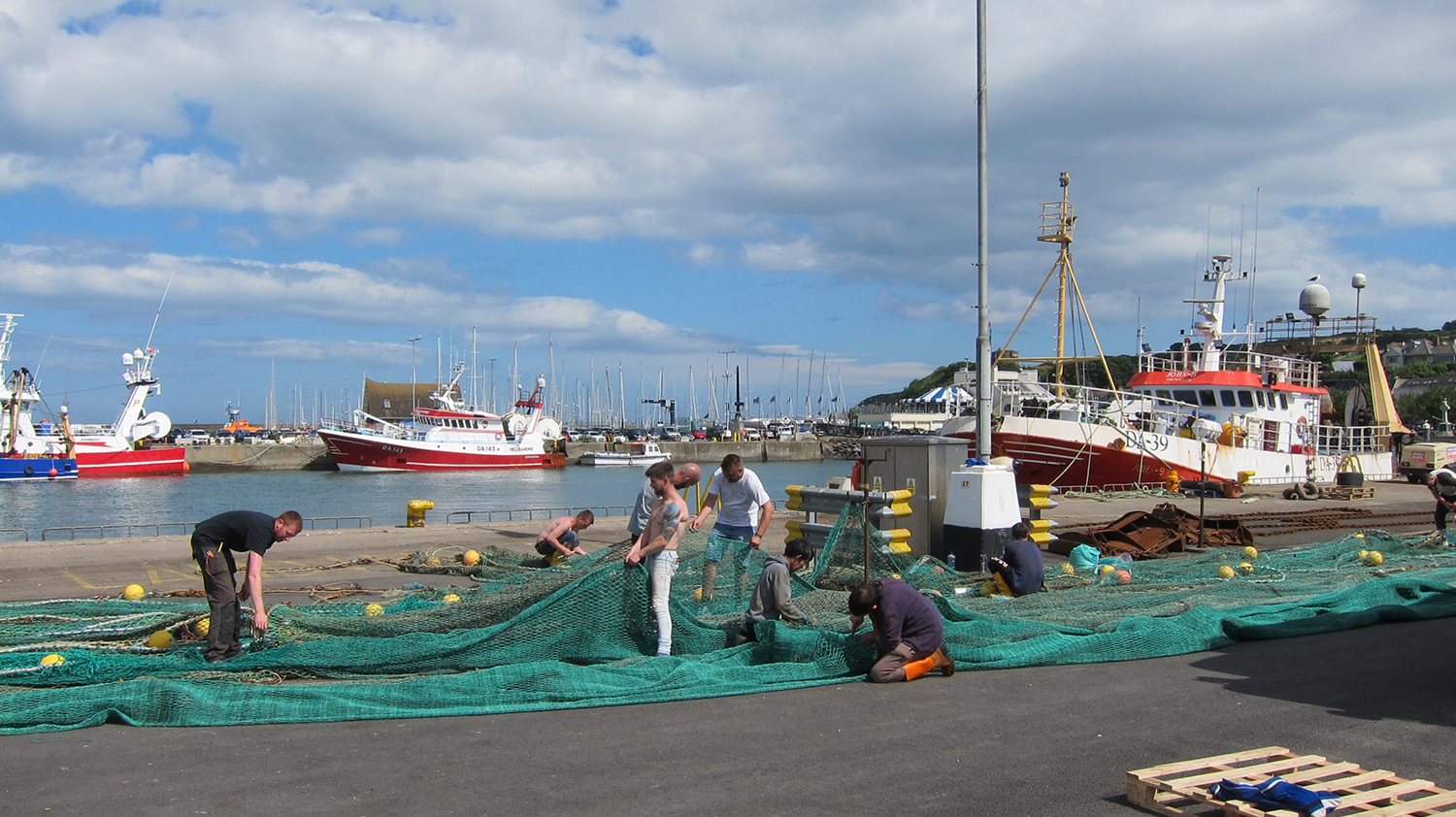
Dixon and his co-authors found that the way in which the event was handled, as well as the subsequent string of reports into the cause, appear to have affected trust relations, with elements such as transparency, competence and communication playing a large role in the conflict. Meanwhile, an already undermined trust in the UK government was also found, possibly made worse by the UK leaving the EU.
“Something that was continuously reiterated was the lack of face-to-face communication between fishers and regulators,” said Dixon. “Breakdowns in communication appeared to be a particular sticking point, as well as a lack of democratic input and over policing. In some cases, policymakers would visit an area to discuss an issue, but would not allow fishers any input. These all appeared to be resulting in low levels of trust and even distrust.”
“The UK fishing industry has very strong ties with local communities, so it’s ironic that the issue of communication was flagged up,” said Dr. Gaetano Grilli at the Norwich Business School of the University of East Anglia. “The fishing industry needs a more local democratic process and a more bottom-up approach to policymaking, which hopefully will be implemented with the new policies and fisheries management plans.”
The study also revealed that different regions of the UK had issues with different government institutions, and that region-specific issues were driving low levels of trust in specific areas, although local and regional institutions were more trusted than national ones. In this sense, there are opportunities to improve trust relations at the local level, said Dixon. Institutions, for example, will need to demonstrate their trustworthiness by improving transparency, communication and service outcomes to enhance confidence in their competence and commitment to fishers’ future.
It comes down to better communication, helping fishers connect with policymakers and managers, and creating opportunities for more face-to-face interaction.
Trust is one of the best ways to improve fisheries management, Stewart said, as it results in a freer exchange of information and makes it easier for the fishing industry and other stakeholders to adapt to today’s environment. This includes climate change, the development of industries such as offshore wind that can impact the fishing industry, and global conflicts, such as the war in Ukraine, which can change seafood distribution networks.
Stewart also adds that directly involving fishing communities in governance will improve transparency and bring together the interests of fishers and regulators. One way in which to do this is through the Fishing Industry Science Partnership (FISP) scheme. Part of the UK Seafood Fund, the scheme funds data collection and research to improve knowledge of fisheries and aquaculture. Fishers can work with research organizations and the seafood industry on projects that focus on areas such as stock surveys or camera technology to gather data.
“It comes down to better communication, helping fishers connect with policymakers and managers, and creating opportunities for more face-to-face interaction,” said Stewart.
Although focused on the UK, hopes are high that the study will pave the way for more expansive analyses into trust in fisheries sectors across the world. Grilli says that despite the huge variety of fisheries worldwide, local adaptive management, efficient communication and fisher participation are key takeaways that could not only contribute internationally but also result in a more productive UK sector.
“The fisheries value chain in the UK is fragmented, with many parties including fishers, retailers, processors, food providers and policymakers who do not always work closely together,” he said. “Higher levels of trust in the chain can lead to further exchanges between scientists and fishers, for example, or fishers steering consumers toward local seafood. Any commitment to change relations between these different parties can only be a positive step.”
“We often hear about healthy, productive seas that are great for everybody, but it’s not clear how those seas will be created,” said Stewart. “I would like to see fisheries in the UK have a clear vision and more specificity in what [they are] aiming for. I would also like to see better use of science and more collaboration. Building trust and cooperation at the local level is pivotal for cooperative management that will help to ensure the long-term sustainability of UK fisheries.”
Now that you've reached the end of the article ...
… please consider supporting GSA’s mission to advance responsible seafood practices through education, advocacy and third-party assurances. The Advocate aims to document the evolution of responsible seafood practices and share the expansive knowledge of our vast network of contributors.
By becoming a Global Seafood Alliance member, you’re ensuring that all of the pre-competitive work we do through member benefits, resources and events can continue. Individual membership costs just $50 a year.
Not a GSA member? Join us.
Author
-

Bonnie Waycott
Correspondent Bonnie Waycott became interested in marine life after learning to snorkel on the Sea of Japan coast near her mother’s hometown. She specializes in aquaculture and fisheries with a particular focus on Japan, and has a keen interest in Tohoku’s aquaculture recovery following the 2011 Great East Japan Earthquake and Tsunami.
Tagged With
Related Posts
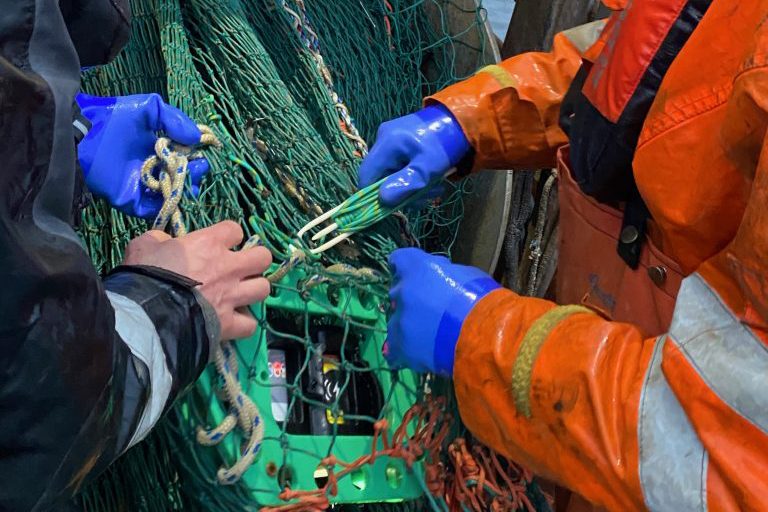
Fisheries
‘A world down below’ – Deeper fishing insights lead to better tools for bycatch reduction
High-tech bycatch reduction devices – data analytics, cameras and sensors – are in play but SafetyNet Technologies says the secret is collaboration.
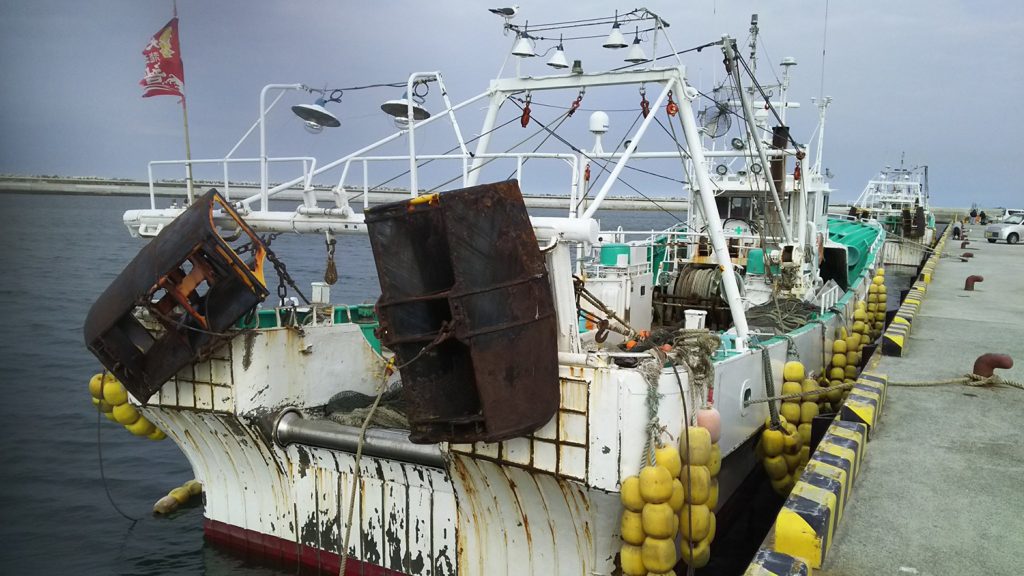
Fisheries
‘It’s been done for decades’ – How the upcoming Fukushima water release could impact Japan’s fishing industry
In Japan, discussions continue and concerns grow as authorities prepare for the Fukushima water release into the Pacific Ocean.
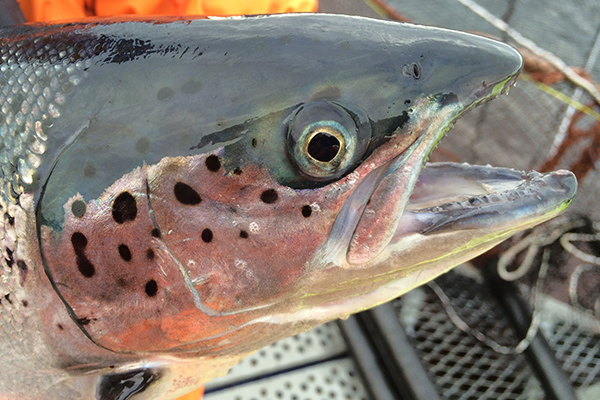
Intelligence
‘Salmon Wars’ book earns a thumbs-down rating from aquaculture and fishing groups
New book, “Salmon Wars, The Dark Underbelly of our Favorite Fish,” is garnering criticism for rehashing old or incorrect information.
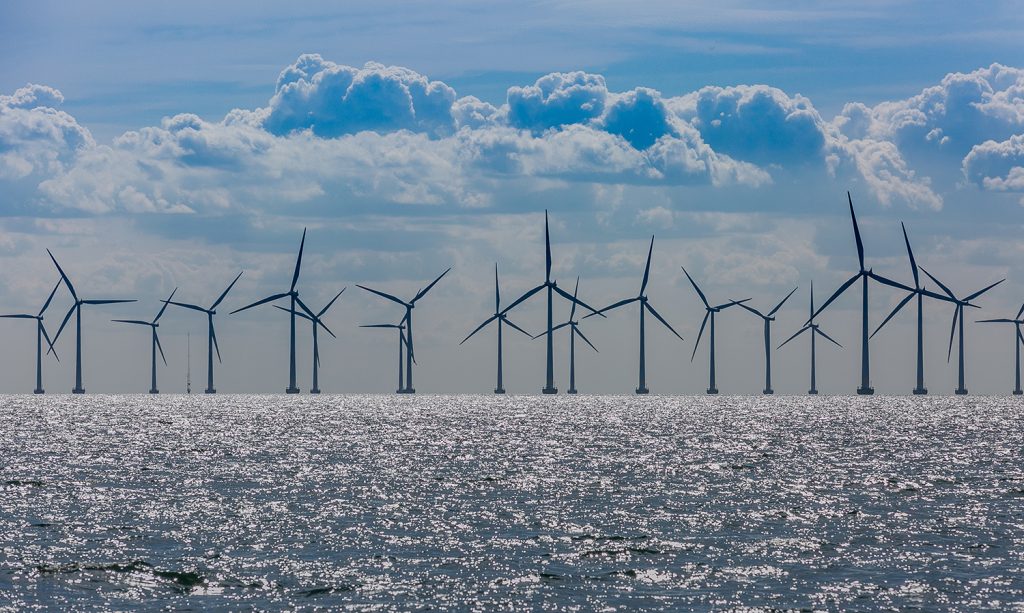
Intelligence
‘No one knows what the risks are,’ say New England fishermen about pending offshore wind farm project
The New England fishing industry is worried that the approval process for a massive offshore wind farm off the coast of Rhode Island is moving too fast.


